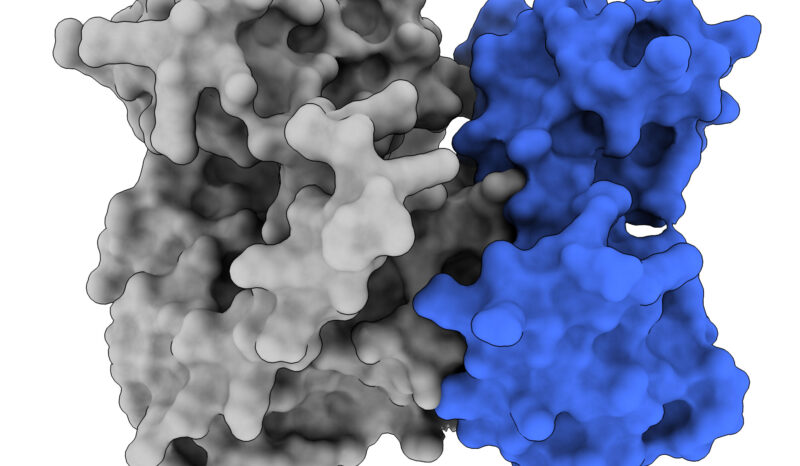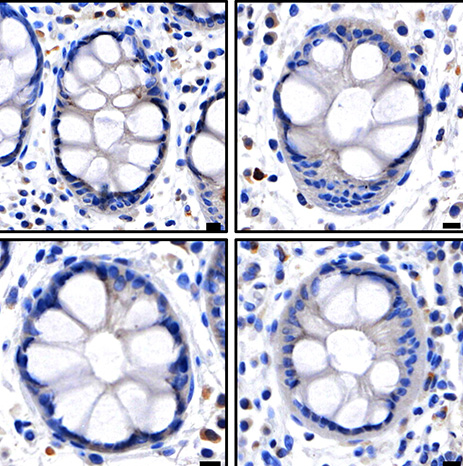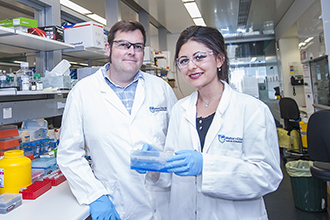Horne CR, Dite TA, Young SN, Mather LJ, Dagley LF, Johnson JL, Yaron-Barir TM, Huntsman EM, Daly LA, Byrne DP, Cadell AL, Ng BH, Yousef J, Multari DH, Shen L, McAloon LM, Manning G, Febbraio MA, Means AR, Cantley LC, Tanzer MC, Croucher DR, Eyers CE, Eyers PA, Scott JW, Murphy JM. PSKH1 kinase activity is differentially modulated via allosteric binding of Ca2+ sensor proteins. Proceedings of the National Academy of Sciences of the United States of America. 2025;122(8):10.1073/pnas.2420961122
Hoblos H, Cawthorne W, Samson AL, Murphy JM. Protein shapeshifting in necroptotic cell death signaling. Trends in Biochemical Sciences. 2025;50(2):10.1016/j.tibs.2024.11.006
Pefanis A, Bongoni AK, McRae JL, Salvaris EJ, Fisicaro N, Murphy JM, Ierino FL, Cowan PJ. Inhibition of RIPK1 or RIPK3 kinase activity post ischemia-reperfusion reduces the development of chronic kidney injury. Biochemical Journal. 2025;482(2):10.1042/bcj20240569
Tye H, Conos SA, Djajawi TM, Gottschalk TA, Abdoulkader N, Kong IY, Kammoun HL, Narayana VK, Kratina T, Speir M, Emery J, Simpson DS, Hall C, Vince AJ, Russo S, Crawley R, Rashidi M, Hildebrand JM, Murphy JM, Whitehead L, De Souza DP, Masters SL, Samson AL, Lalaoui N, Hawkins ED, Murphy AJ, Vince JE, Lawlor KE. Divergent roles of RIPK3 and MLKL in high-fat diet–induced obesity and MAFLD in mice. Life Science Alliance. 2025;8(1):10.26508/lsa.202302446
Chiou S, Cawthorne W, Soerianto T, Hofferek V, Patel KM, Garnish SE, Tovey Crutchfield EC, Hall C, Hildebrand JM, McConville MJ, Lawlor KE, Hawkins ED, Samson AL, Murphy JM. MLKL deficiency elevates testosterone production in male mice independently of necroptotic functions. Cell Death & Disease. 2024;15(11):10.1038/s41419-024-07242-z
Cater RJ, Ryan RM, Oakhill JS, Czabotar P, Murphy JM, Call MJ. Structure, function, surf, repeat: A week at Lorne Proteins 2024. Structure. 2024;32(11):10.1016/j.str.2024.10.007
Maddirevula S, Shagrani M, Ji A-R, Horne CR, Young SN, Mather LJ, Alqahtani M, McKerlie C, Wood G, Potter PK, Abdulwahab F, AlSheddi T, van der Woerd WL, van Gassen KLI, AlBogami D, Kumar K, Muhammad Akhtar AS, Binomar H, Almanea H, Faqeih E, Fuchs SA, Scott JW, Murphy JM, Alkuraya FS. Large-scale genomic investigation of pediatric cholestasis reveals a novel hepatorenal ciliopathy caused by PSKH1 mutations. Genetics in Medicine. 2024;26(11):10.1016/j.gim.2024.101231
Davies KA, Czabotar PE, Murphy JM. Death at a funeral: Activation of the dead enzyme, MLKL, to kill cells by necroptosis. Current Opinion in Structural Biology. 2024;88:10.1016/j.sbi.2024.102891
Garnish SE, Horne CR, Meng Y, Young SN, Jacobsen AV, Hildebrand JM, Murphy JM. Inhibitors identify an auxiliary role for mTOR signalling in necroptosis execution downstream of MLKL activation. Biochemical Journal. 2024;481(17):10.1042/bcj20240255
Diplock N, Baudin M, Xiang X, Liang L-Y, Dai W, Murphy JM, Lucet IS, Hassan JA, Lewis JD. Molecular dissection of the pseudokinase ZED1 expands effector recognition to the tomato immune receptor ZAR1. Plant Physiology. 2024;196(1):10.1093/plphys/kiae268






